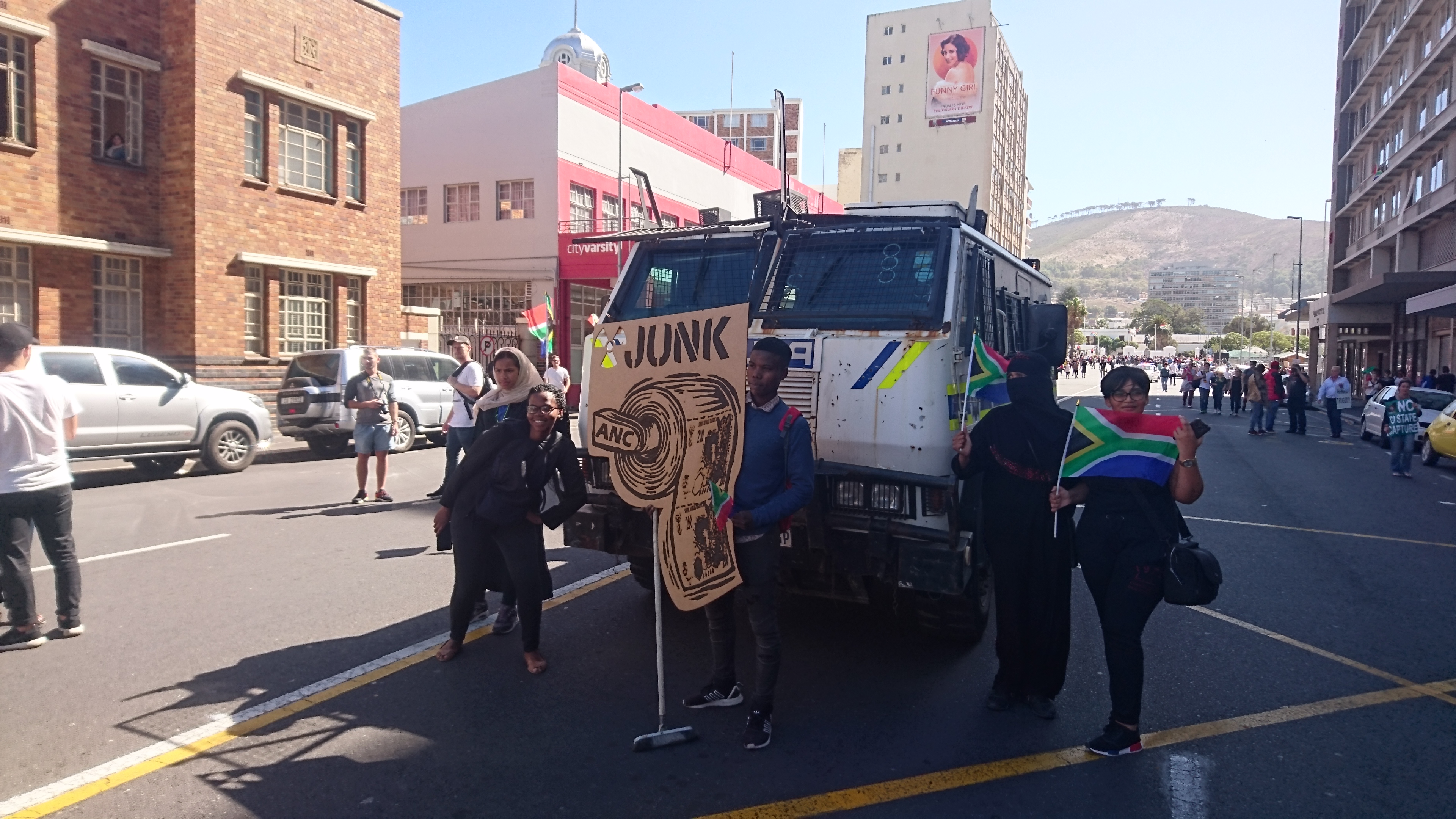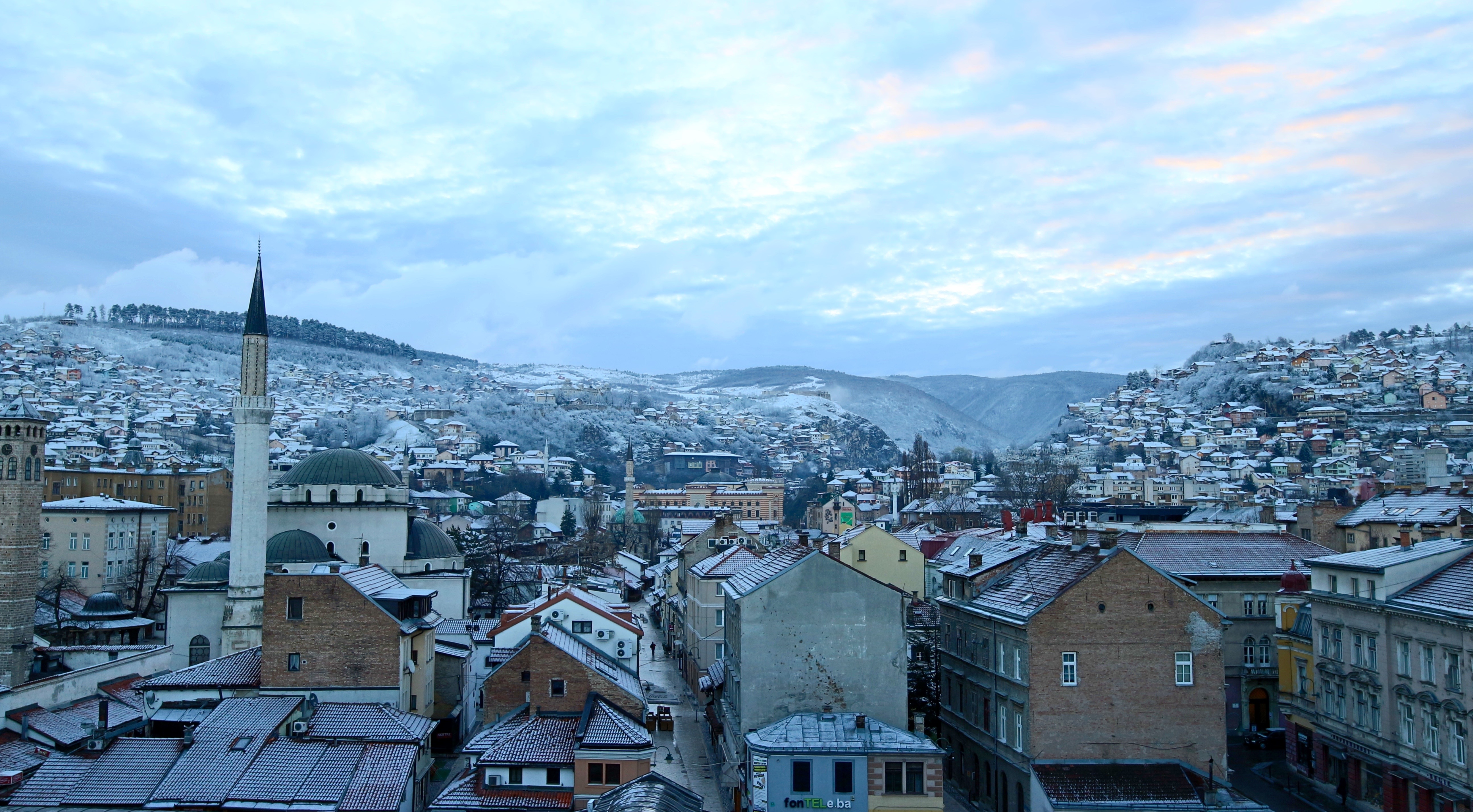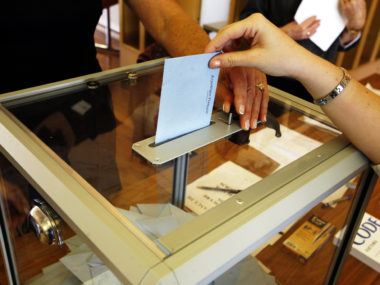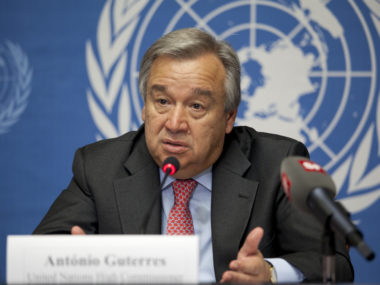By Timothy D. Sisk for Denver Dialogues.
South Africa is witnessing an escalating crisis as the succession of beleaguered President Jacob Zuma unfolds in the coming weeks and months. On August 8th, the country’s National Assembly is poised to take up a fifth vote of no-confidence in Zuma, accused of graft and influence-peddling with the oligarchic Gupta family, and “state capture” (here and here). Analysts are divided over whether the ruling African National Congress (ANC) will stay united and back Zuma, as before, or face a life-threatening public split.
In the short term, at issue is whether the August vote will be held by secret ballot. In June, South Africa’s Constitutional Court ruled that it was up to the Speaker of Parliament, Baleka Mbete, to decide whether the ballot should be secret or whether MPs’ votes would be known to the party; the no-confidence vote becomes essentially an intra-ANC affair and previously ANC elites were able to keep the ruling bloc united. Not this time, apparently, as already several ANC members have publicly broken ranks and said they’ll vote to precipitate Zuma’s long-awaited #Fall. Speaker Mbete has yet to announce her decision.
#Zumamustfall
In the run-up to the no-confidence drama, the political climate has deeply polarized. Already this year, the country has seen 40 politically related murders, and there are fears that as the Zuma era fades, violence will rise. ANC MPs such as Makhosi Khoza – who have stated publicly they’ll vote against Zuma – have received death threats. Political killings have escalated again in South Africa (the early 1990s were fraught with widespread political violence), particularly in the predictably restive KwaZulu-Natal province. Zuma’s kleptocracy does appear to be rapidly eroding; soon, it appears increasingly likely, Zuma will fall.
Zuma’s “falling” has long been a dream for many fed-up South Africans. Citizens from all stations in life turned to the streets in a widespread social movement that ramped up when Zuma abruptly fired the country’s then-Finance Minister, Pravin Gordhan, in July of this year. Since 2016, the #Zumamustfall movement has brought civil society, trade unions, opposition parties, and mobilized students together to end the embarrassment, misrule, and mismanagement (although it has been criticized as a “white” movement, practically the anti-Zuma social movement is cross-racial and ethnic given the far-left Economic Freedom Front’s equally strident calls for Zuma’s ouster). The rolling mass action against Zuma has come on the heels of a stunning loss by the ruling African National Congress (ANC) in local elections in 2016, in which the ANC lost its majority in most of the country’s major metropolitan centers. Internal stresses within the party are spilling over into open fissures. It is wholly unclear whether the party can stay together in the run-up to its 54th National Conference in Kimberley in December.
Stress-testing Democracy
The immediate and longer-term crises between now and when Zuma falls are a stress test for democratic consolidation in South Africa. It is not at all clear whether democratic institutions can handle the strain; under ANC dominance, institutions have been compromised, independence and autonomy have been constrained, and corruption has been rife. Beyond the impending no-confidence vote (reminder: Zuma has survived four already), the danger to South Africa’s democracy comes from the impending political transition coupled with widening inequality, persistent poverty, personal insecurity, and social and political polarization. Unfortunately, the democratic institutions created in 1996 which made democracy possible – including the presidency, which Zuma captured – may well be ill-equipped to handle the present and future stress test to democracy that the ongoing political crisis reflects.
Crisis and social unrest threaten South Africa’s still-juvenile post-apartheid democratic political institutions. To fend off challenge, like many political elite these days, Zuma turned to populism, racial and ethnic mobilization, and, increasingly, coercion and loyalty-demanding intimidation. As society and politics in South Africa polarize, political institutions cease to be effective. Service delivery was already anemic: South Africa is the protest capital of the world, where if you want to get attention for delivery of services from the state, being heard by the authority seems to require violent protest.
South Africa’s next general elections are slated to occur in 2019 and with them, the possibility – even likelihood – of the end of the post-apartheid ANC majority. Eyes are trained and expectations are high for the December 2017 National Congress of the ANC in 2018 as the ANC has already realized that it must shake the nepotistic, lazy, and ineffective governance of the Zuma years. Still, a Zuma faction led by his ex-wife Nkosazana Dlamini-Zuma, formerly of the African Union, hopes to cling to power through the intra-party patronage and loyalty networks of this faction of the ANC. Zuma endorsed her in May 2017 to succeed him for the ANC leadership, saying “She is bold and you can’t fool her. She is someone you can trust.”
On the other side within the ANC are increasingly vocal pragmatists, led by Deputy President Cyril Ramaphosa (an architect of the 1996 constitution, billionaire businessman, former trade unionist, and a seasoned centrist moderate) and the seemingly imminent total split between the ANC and long-time ally and political party, the South African Communist Party (SACP).
In the long-term, the Zuma succession crisis is a rolling stress test for the consolidation of democracy in South Africa. The coming transition from Zuma and beyond until the 2019 elections promises to introduce new strains to the democratic institutions established in the landmark constitutional settlement of 1996, ones that may not have been sufficiently foreseen or appreciated by the framers of the constitution. When a young, vibrant, and energetic society such as South Africa’s is inhibited by polarized politics and bad governance, the imbalances between expectations and realities leaves society vulnerable to extremism, crime, corruption, racial tensions, and xenophobia.
How Consolidated is Democracy? Three Propositions
Will the South African presidency, parliament, courts, election bodies, anti-corruption institutions, and political parties show resilience in the face of the turbulence and challenges that lie ahead? Three propositions from South Africa’s experience yield insights on whether and how its nascent democracy might survive the short- and long-term stress tests that lie on the horizon. Alternately, the propositions inform how South Africa’s democracy can be considered “fragile” and lacking in democratic consolidation, thus providing some insights for how the country’s politics could further hold back a vibrant and poised-for-development society.
- If the country survives the crisis and gets back on the track of inclusive economic growth and governing from the center, it will be because civil society mobilized to claim democratic rights and prevent tyranny.
Consolidation of democracy requires a citizenship dedicated to the values of participation and political equality, evidenced in South Africa by robust social movements, vibrant civil society, and still-free (but routinely challenged) media. As a society, the country is replete with exceptionally high capacity citizens able to organize autonomously to address social issues, as organizations such as the Treatment Action Campaign did to ensure a more effective governance response to the 2000s HIV/AIDS crisis in the country.
Some have argued that in earlier periods of South African history, particularly during the early 1990s transition to democracy, civil society saw the country through the worst of the crises and allowed political elites to come to their senses and compromise for the sake of national unity. To the extent that the present crises will be overcome, it will be because South Africa’s citizens themselves are committed to defending the values and institutions reflected in the 1996 constitution.
- The bargains reflected in the celebrated 1996 constitution made democracy possible, but several choices made during the transitional period now contribute to political instability and should be revisited… possibly by naming a high-level constitutional review commission.
Consolidation of democracy requires institutions that adapt to the social context in which they are embedded. Many of the features of South Africa’s 1996 constitutional settlement – particularly, it’s progressive bill of rights – appear enduring and stand the test of time (and, at times, have contributed to democracy’s resilience by providing a touchstone for judicial independence).
Regrettably, it appears that some of the fundamental choices and institutions of the constitution need revisiting…not least of which is the institution of the president which is causing so much crisis and turmoil within the country at the moment. There are two major institutions in which flaws in the constitutional design may leave South Africa vulnerable to a polarized society and politics.
The presidency. Presidents in South Africa are indirectly elected by the parliament or National Assembly. Presidential selection, oversight, and accountability (!) are provided primarily within the party, particularly as long as the ANC parliamentary majority is secure. It may well be that South Africa should move toward direct election of a president, with attention given to design of the presidential electoral process to ensure that anyone succeeding to win the presidency has support across region, race and ethnic, gender, or religious divides within society. The presidency in deeply divided South Africa must be a unifying, not dividing, institution.
The electoral system. At present, national politics has an extremely low threshold closed-list proportional representation (PR) electoral system. For non-specialists, this means that parties get a percentage of the seat share in parliament consistent with their vote share. What’s good about the system is that it is highly inclusive: vote share and seat share are proportional, so minorities can get a voice in parliament. In the 2014 elections, the smallest party (the African People’s Convention), won a seat in the Assembly with 0.17% of the vote.
At the same time, the system has deep maladies: party elites control who gets on the party lists, parliamentarians are not responsive to any particular group of citizens or district, but to the party. And, most important for South Africa’s future resilience, there is widespread agreement in political science that such systems over time can lead to “polarized pluralism,” of the proliferation of parties as has been seen in, for example, Israel or post-war Italy. In such situations, governing coalitions are put together with convenience and without regard to a common vision for national development, and coalition stability is often undermined by excessive demands of small parties (leading to rapid changes in government and chronic instability, or coalition “cycling”).
- South Africa won’t be a safe context for democracy until underling social inequalities and vulnerabilities are reduced and levels of human security are improved.
Consolidation of democracy is more likely when the underlying social vulnerabilities that give rise to extremism and polarization are reduced and in which there is a basic level of equality, dignity, and worth in society. South Africa, while seeing reductions in poverty and overall inequalities since apartheid ended in 1994, is by no means there yet. As a recent scholarly study on the constitution found, discord over the meaning of the constitution leads to chronic policy failure; democratic institutions are ill-prepared to weather crises of politics that emerge when policy is unable to manage or mitigate deep-seated social problems of poverty, social dislocation, and identity-based conflict.
Inequality has been reduced but remains doggedly high; communities remain segregated and despite the emergence of a strong black middle class in the country, there continues to be unacceptably high levels of youth unemployment which is as high as 50%. Gender-based violence and crime in general are among the highest in the world. Women in South Africa face threats of violence and vulnerabilities: a 2016 report by the Johannesburg-based Center for the Study of Violence and Reconciliation found that despite making considerable strides in advancing women’s rights and political participation, economic, cultural, and social factors interact to create a dangerous environment for women in the country of which sees high-level of gender-based and sexual violence against women.
Beyond 2019: Time for an Independent Constitutional Review Commission
Twenty-five years ago this month, in 1992, South Africa’s transition to democracy was also in crisis. The de-Klerk-Mandela talks had broken down in the face of widespread political violence, and following the Boipatong massacre of June 1992, talks had completely broken off. It would not be until a major political crisis following the Bisho massacre of September 1992 before the transition would be back on track. In times of crisis, a centrist, moderate center pulled together to save the transition and peacefully manage circulation of political elites.
The 1992 crisis of transition to democracy is now the 2017 crisis of democratic consolidation. Although many of the institutions of South Africa’s democracy have already shown remarkable resilience – particularly, the Constitutional Court and the Chapter 9 independent institutions – without the emergence of a strong, moderate core of inclusive governance, the crisis of consolidation will worsen (Chapter 9 institutions refers to the independent bodies on human rights, public prosecutor, anti-corruption/auditor-general, elections, and gender equality).
The 2019 elections hold the real possibility of an end to the ANC hegemony in politics; whether or not this occurs, a longer-term risk is that of further polarization and unstable governance through weak and potentially unstable coalitions. It may be that a system such as mixed member proportional might be more appropriate, or possibly a form of single transferable vote as a way to balance the clear need for inclusivity with greater accountability of parliament and political parties, for example.
It is very difficult to reform institutions like the presidency and electoral system of a country well-beyond their sell-by date; institutions, once in place, tend to endure. While the 1996 South Africa constitution was designed to last centuries, not decades, twenty-five years on there is need to revisit some key elements of the settlement. Yet it seems likely the country will continue to muddle through with the inefficiencies of the presidency, and the risks of the highly PR electoral system, for the foreseeable future as building a coalition to revisit the constitution evokes fears of reopening Pandora’s box.
In the meantime, at least one way forward for South Africa would be the appointment of an independent, expert-oriented constitutional review commission that would take a sober look at modest adaptations to South Africa’s democratic institutions that can cope with the rolling crisis that will continue to test their resilience in the coming years.







1 comment
I thought at the time that continuing the indirect election of the president in the RSA was a very bad idea, pretty much for the reasons given here. As long as the ANC held, no problem. However, all it would take was an incompetent president (check!) and the system would be in real trouble. I also wasn’t sure why Mandela didn’t opt for direct popular election with a second ballot system. I mean, in the short run indirect election would insure stability, but only direct election could do the job.
Now the thing to do would be to revise the constitution to use a Nigerian system for elections: the president has to win 50% +1 of the popular vote and win at least 25% of the vote in 2/3rds of the Nigeria states. This forces national parties to compromise and deliver the goods locally. (It would also be a good idea to increase the number of RSA provinces and give provincial governments more power, like the Nigerians did.) It works.
As to the NA: I said the same thing at independence there too. Closed-list PR with a negligible vote threshold was a mistake too. A mixed PR system or a larger NA elected from smaller districts with FPTP would have worked better. A quick fix would be a 5% threshold for the parties; they’ve already sorted out to two majors anyway. That might work.